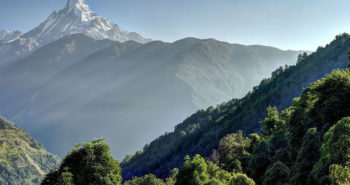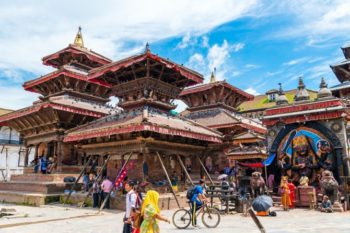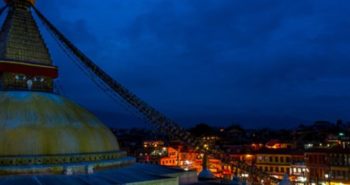Safety in Nepal for Expat and Tourist
Firstly, it is a relatively safe country. It is fine to walk around in the evening (even in those unlit streets). However, public transport (particularly inter-city) is not as safe as in countries with well-maintained roads and vehicles. When taking domestic flights, consideration has to be given to the landscape and weather. The UN recommends using Buddha Airlines, as their planes are better maintained and their safety record is higher. However, they do not fly to the mountainous areas. Crossing roads is a bit of a hazard until you get the hang of it. Basically, the pedestrian the least important thing on the road. Don’t expect many vehicles to stop at zebra crossings for you. How the locals do it is walk out boldly (!), hold out your hand in a stop sign and cross, making sure you look both ways for oncoming speeding motorbikes. If possible, join others waiting to cross the road.
It is good to be aware that there are political fractions that ever so often become more active and have been known to become violent. Foreigners are not normally targets but one should avoid large political gatherings and take information from UN/ embassy radio broadcasts when there are strikes and unrest. Strikes, or bandha as they are known, are frequent. Pay attention to news and do not take vehicles out on the road. Walking around is fine although most shops and businesses will be closed.
Trekking should never be undertaken alone. Even a twisted ankle can put you into dire straits if you are alone. And there is the possibility of landslides, flash floods and other naturally occurring dangers. Unfortunately, there is also the danger from robbers, or worse. While this is rare, it is best not to put yourself into this position. If you don’t want some chatty English speaking, know –it-all guide (yes we ALL know those types!), then hire a local porter who will not only carry your bag, go for help if necessary, and have a local knowledge of the land, but in general will have less language skills and therefore be less intrusive. On the other hand, knowledgeable and talkative trekking guides can add depth to your trip.
The earthquakes of 2015 killed over 9,000 people and left many more homeless. What most of us didn’t realise is that an earthquake has many aftershocks and so far, over the past 15 months (at the time of writing) there have been around 450 aftershocks over the magnitude of 4 on the Richter scale. Having your go-bag and earthquake kit prepared is just common sense. If your office does not provide you with information on this, you can very easily get information from the Internet or other expats.


